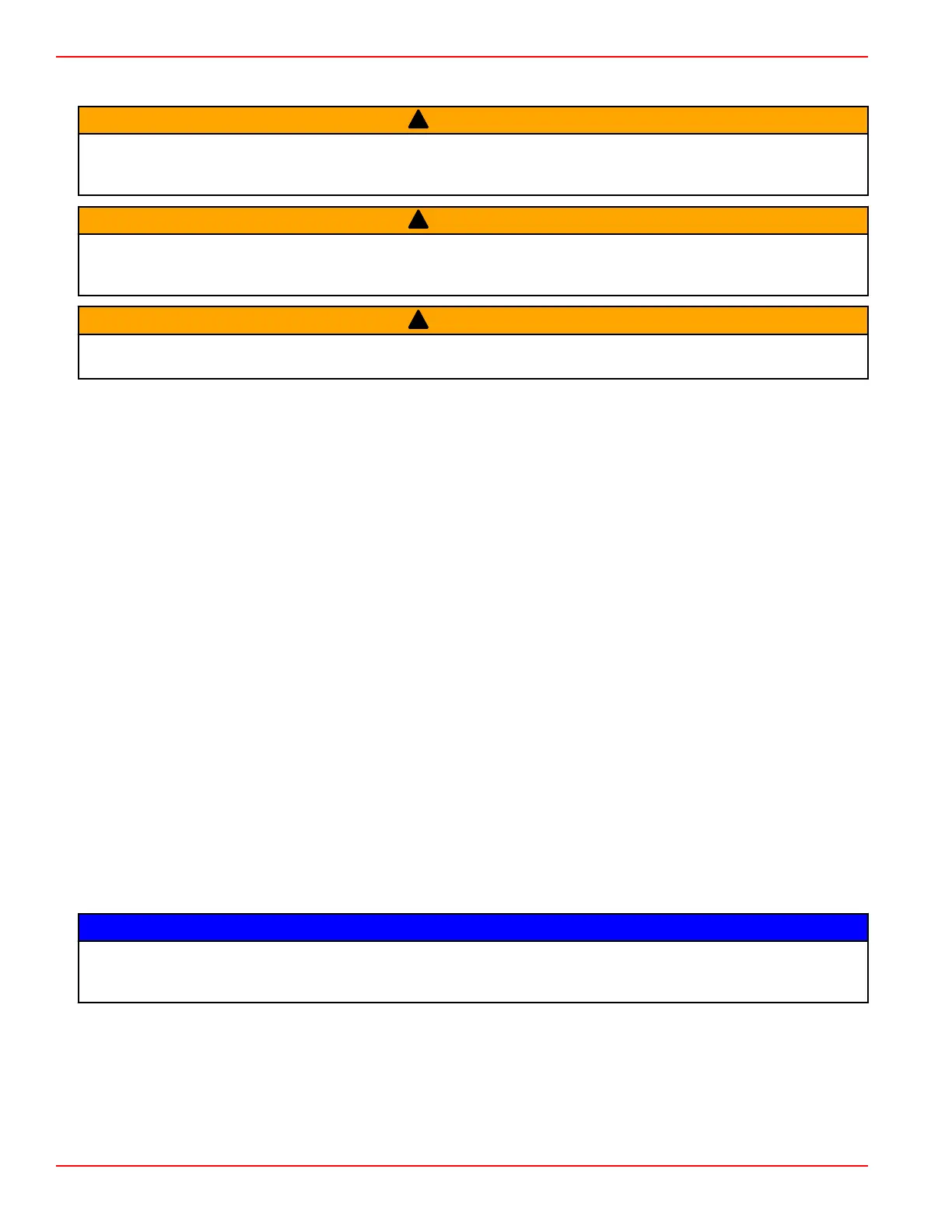Section 4 - Specifications
Page 38 90-8M0070920 eng AUGUST 2012
Fuel Requirements
!
WARNING
Failure to comply with regulations can result in injury from fire or explosion. Electrical system components on this engine are
not rated as external ignition–protected (EIP). Do not store or use gasoline on boats equipped with these engines, unless
provisions have been made to exclude gasoline vapors from the engine compartment (REF: 33 CFR).
!
WARNING
Fuel leakage is a fire or explosion hazard, which can cause serious injury or death. Periodically inspect all fuel system
components for leaks, softening, hardening, swelling, or corrosion, particularly after storage. Any sign of leakage or
deterioration requires replacement before further engine operation.
!
WARNING
This engine requires diesel fuel. Mixing gasoline, gasohol, or alcohol and diesel fuel can cause serious injury or death due to
fire or explosion. Never mix gasoline, gasohol, or alcohol with diesel fuel.
IMPORTANT: Use of improper or water contaminated diesel fuel can seriously damage your engine. Use of improper fuel is
considered misuse of the engine, and damage caused thereby will not be covered by the warranty.
Grade 2‑D diesel fuel is required, meeting ASTM Standards D975 (or fuel rated Diesel DIN EN 590), and having a minimum
cetane rating of 51.
The cetane number is a measure of the ignition quality of diesel fuel. Increasing the cetane number will not improve overall
engine performance, but it may be necessary to raise the cetane rating for low‑temperature or high‑altitude use. A lower cetane
number could cause hard starting and slower warm‑up, and could increase engine noise and exhaust emissions.
NOTE: If your engine suddenly becomes noisy after a fill‑up, you possibly received substandard fuel with a low cetane rating.
On intermittent‑use engines, high sulphur content diesel fuel will greatly increase:
• Corrosion on metal parts
• Deterioration of elastomer and plastic parts
• Excessive wear of internal engine parts, particularly bearings, and corrosion and extensive damage to other engine parts
• Difficulty starting and operating the engine
Nonferrous Metals and the Fuel System
Nonferrous metals must not be used in the fuel system components. The use of items such as copper lines, brass nipples, or
galvanized tanks may result in an engine power loss or a failure of the injection nozzles.
Winter Operation and Biodiesel
Biodiesel fuel must not be used.
Diesel Fuel in Cold Weather
Unaltered diesel fuels thicken and gel in cold temperatures unless treated. Virtually all diesel fuels are climatized to allow their
use in the particular region for that time of the year. If it becomes necessary to further treat diesel fuel, it is the owner/operator's
responsibility to add a commercial standard brand of anti‑gel diesel fuel additive, following that product's directions.
Antifreeze/Coolant
NOTICE
Using propylene glycol antifreeze in the closed cooling system can damage the cooling system or the engine. Fill the closed
cooling system with an ethylene glycol antifreeze solution suitable to the lowest temperature to which the engine will be
exposed.
Because diesel engines are high‑compression engines, they operate at higher operating temperatures. Therefore, the
closed‑cooling system and engine, including related cooling passages, must remain as clean as possible to provide adequate
engine cooling. To ensure proper cooling, we recommend filling the closed‑cooling section of the cooling system with a low
silicate formula of ethylene glycol antifreeze in a solution with deionized water. Common tap water or softened water contains
unwanted minerals that can leave large deposits in the system that restrict the cooling system efficiency. A low silicate formula
prevents the antifreeze from separating and forming a silicate gelatin. This gelatin can block passages in the engine and heat
exchanger, causing the engine to overheat.

